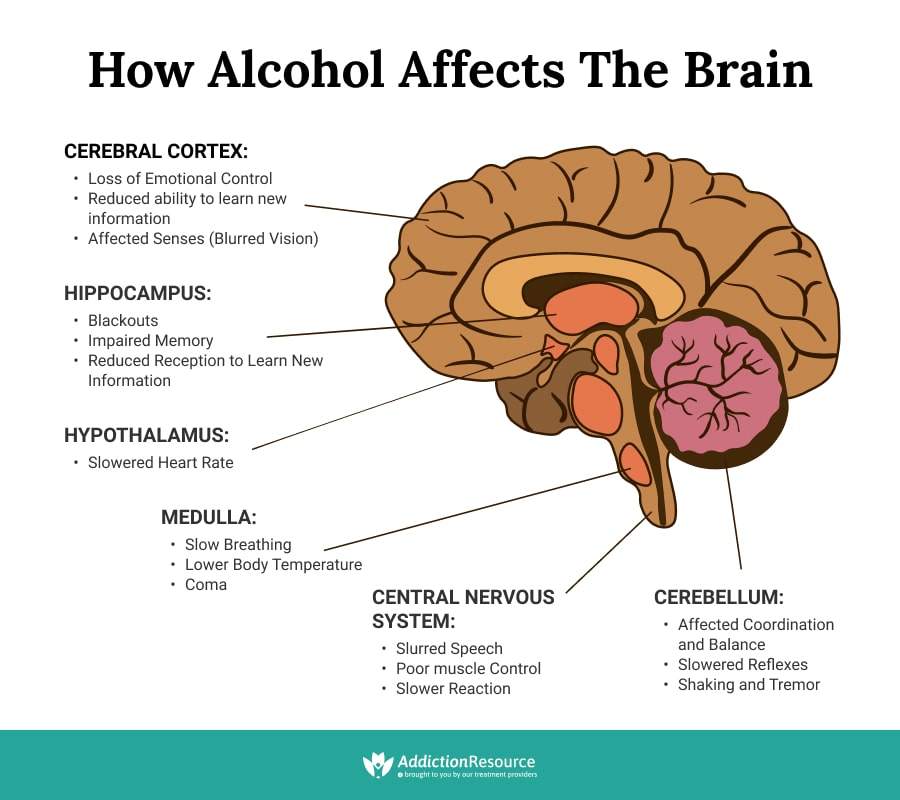More than 85% of adults report drinking alcohol at some point in their lives. This practice is not considered bad until it goes over the board. But how much alcohol can lead to negative consequences, particularly to the brain?
Slurred speech, difficulties with balance and coordination, noticeable impairment of motor functions and vision, memory loss – obviously, alcohol affects the brain. And this list of potential problems is not full.
Have a look at the infographic. Some of these symptoms of drunkenness are noticeable after a person has only a few drinks, and they quickly go away when drinking ends.
An individual who drinks heavily or for a prolonged period of time may experience brain deficits that remain even after he or she becomes sober.
AddictionResourse authors emphasize that alcohol use leads to the loss of brain volume — it literally shrinks. And this doesn’t only apply to heavy drinking. Researchers found out that this is true for moderate drinking.
Several studies have shown that when an alcoholic quits and gets help in time, much of the physical and cognitive changes can get reversed. However, it’s difficult to measure the degree of recovery of brain tissues since these changes are subtle and a high percentage of patients relapses.

Infographic Source: https://addictionresource.com/alcohol/does-alcohol-kill-brain-cells/
Tags Alcohol Affect Brain How
Check Also
A Helpful Guide to Managing Employees with Work Depression
Managing employees who experience work depression is a critical responsibility for any employer, impacting the …
 Infographic Portal New Infographics Resource Portal
Infographic Portal New Infographics Resource Portal
